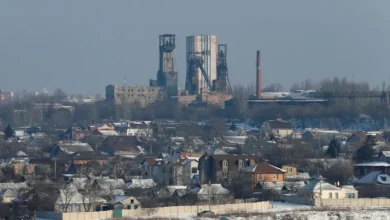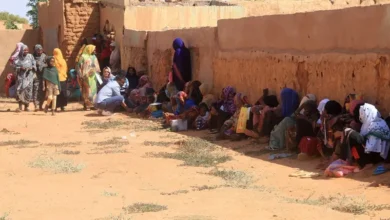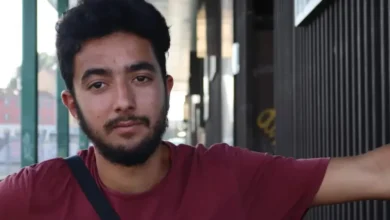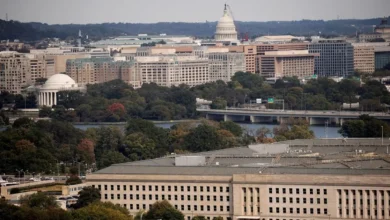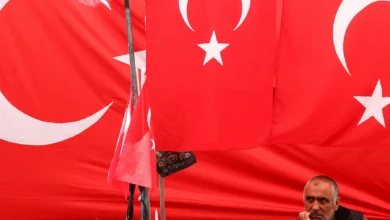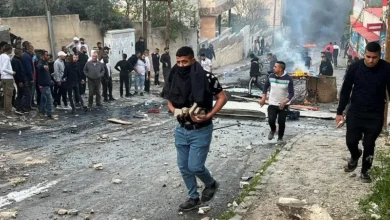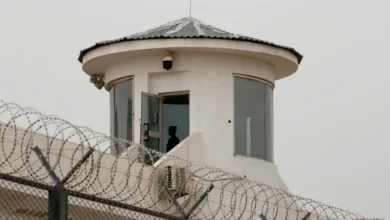‘A nightmare’: Lebanese Americans anxious, angry as Israel attacks homeland
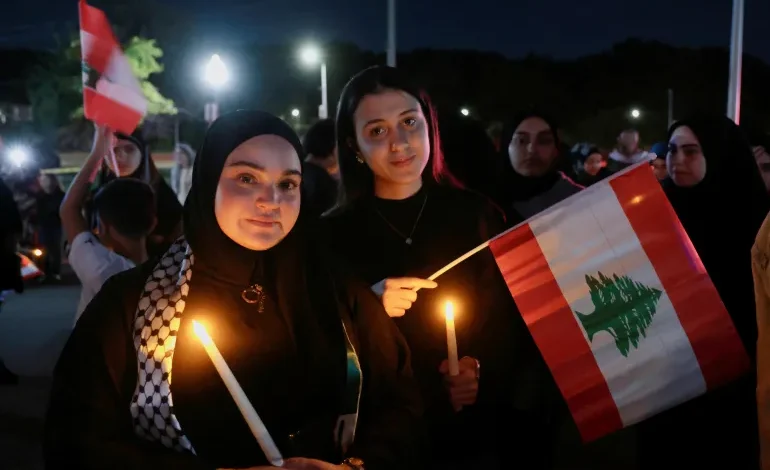
Ali Dabaja says Lebanese Americans have been struggling for the past 12 months with “work-life-genocide” balance as tens of thousands of Palestinians have been killed in Israel’s war on the Gaza Strip.
But now, with the Israeli military unleashing its firepower on Lebanon over the past week, the community is at a “boiling point”.
Israel’s large-scale bombing campaign in Lebanon has hit close to home for Dabaja, a Detroit-area physician. His cousin, Batoul Dabaja-Saad, was killed along with her husband and three children in an Israeli air strike on their home in the southern Lebanese town of Bint Jbeil.
“There is disbelief. There is anger, and there is the feeling of loss – tremendous loss,” Dabaja told Al Jazeera.
He is not alone: As the war in Lebanon intensifies, Lebanese Americans say they are feeling anxiety and sorrow for their loved ones back home – and outrage at their own United States government for continuing to arm and support Israel.
Israel’s large-scale bombing campaign in Lebanon has hit close to home for Dabaja, a Detroit-area physician. His cousin, Batoul Dabaja-Saad, was killed along with her husband and three children in an Israeli air strike on their home in the southern Lebanese town of Bint Jbeil.
“There is disbelief. There is anger, and there is the feeling of loss – tremendous loss,” Dabaja told Al Jazeera.
He is not alone: As the war in Lebanon intensifies, Lebanese Americans say they are feeling anxiety and sorrow for their loved ones back home – and outrage at their own United States government for continuing to arm and support Israel.“We’ve been yelling and screaming at the top of our lungs. We’ve been engaging politicians. We’ve been engaging our country, engaging people who are running for president. And all of that has kind of fallen on deaf ears. And at this point, it becomes very personal for us.”
Israeli attacks
Israel began bombing villages across southern and eastern Lebanon early on Monday, leaving entire communities in ruins and forcing hundreds of thousands of people to flee their homes.
While the full extent of the damage remains unclear as much of the country’s south has become a no-man’s land, it appears that Israel is engaging in the same extensive destruction that the world has seen it inflict on Gaza.
In village after village, videos and eyewitness accounts convey images of obliterated buildings and rubble-covered roads.
While Israeli officials have said that the military is targeting homes used to store weapons used by Lebanese group Hezbollah to attack Israel, critics say the breadth of the bombardment shows its indiscriminate nature.
More than 620 people have been killed in Israeli attacks in four days, according to Lebanon’s Health Ministry.
Like the more than 41,500 Palestinians who have been killed in Gaza since October of last year, the victims in Lebanon are not just numbers, Dabaja said: Each person had stories, dreams and social connections that go well beyond the country’s borders.
He described his cousin Batoul, who worked two jobs to help support her family, as someone who was charismatic, well-educated, sociable and diligent.
“She had a light that was unlike other people. That light was extinguished, as was the light of so many others who lost their lives in this tragic and indiscriminate bombing,” Dabaja said.
‘It’s like being in a nightmare’
Many Lebanese Americans woke up on Monday to messages and calls from family members looking for refuge from Israel’s bombardment.
Suehaila Amen, a community advocate in Michigan who is hosting a Lebanese foreign exchange student, said she received a call from the student’s mother, who was fleeing her village near the southern city of Tyre.
“She was like, ‘My daughter is with you, if something happens to us, please take care of her.’ That’s what I woke up to. I couldn’t understand what was going on,” Amen told Al Jazeera.
She described feeling deep sadness over the killings and widespread destruction, as well as worry for her friends and relatives in Lebanon who have been forced to leave their homes.
